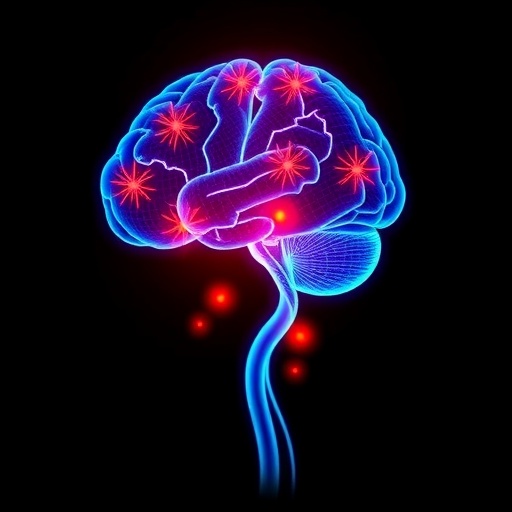In a groundbreaking randomized clinical trial recently published in JAMA Network Open, researchers explored the effects of open-label placebo treatment on migraine sufferers, uncovering nuanced insights into its potential impact beyond mere symptom control. While the placebo intervention did not yield a statistically significant decrease in headache frequency, it was linked to remarkable improvements in patients’ quality of life and reductions in pain-related disability. This revelation prompts a reevaluation of how placebos may serve as adjuncts in migraine management, emphasizing the importance of holistic patient care that transcends traditional metrics.
Migraine, a debilitating neurological disorder characterized by intense recurrent headaches often accompanied by nausea, photophobia, and phonophobia, affects millions worldwide, imposing substantial individual and societal burdens. Conventional pharmacological approaches focus on symptom amelioration or attack prevention, but they frequently fall short of delivering comprehensive relief or carry risks of adverse effects. Against this backdrop, the scientific community has long been intrigued by the placebo phenomenon — an effect where expectation and belief alone can provoke biological and psychological responses to treatments lacking active medical ingredients.
The open-label placebo approach, where patients are informed upfront that they are receiving an inert treatment, challenges the classical notion that deception is necessary for placebo efficacy. This trial, led by Julian Kleine-Borgmann, MD, and colleagues, enrolled a diverse cohort of individuals diagnosed with migraine and administered open-label placebos alongside standard care. Throughout the study period, rigorously designed protocols ensured randomization and unbiased assessment of outcomes, adhering to the highest standards of clinical research methodology.
One of the pivotal findings was that, despite no observable decline in the number of headache episodes, participants reported significant enhancements in their overall quality of life. These subjective improvements encompassed domains such as emotional well-being, social functioning, and daily vitality. Additionally, participants experienced a noteworthy reduction in pain-related disability, indicating that their perceived burden and interference with routine activities diminished appreciably.
These results illuminate a complex interplay between mind and body, suggesting that open-label placebos may modulate patients’ pain perception and coping mechanisms even without altering the underlying frequency of attacks. Neurobiological hypotheses propose that placebo interventions can engage endogenous pain modulation pathways, including the release of endorphins and activation of brain regions implicated in expectation and reward processing. However, the exact mechanisms remain to be elucidated through future neuroscientific investigations.
From a clinical standpoint, the study advocates for a paradigm shift wherein clinicians might consider integrating open-label placebo treatments as complementary strategies within migraine care frameworks, particularly for patients dissatisfied with conventional therapies or those seeking non-pharmacological options. Such approaches could harness the therapeutic potential of patients’ own cognitive and psychological resources without the ethical quandaries associated with deception.
Moreover, the research underscores the imperative to refine outcome measures in migraine trials by incorporating multidimensional evaluations that capture quality of life and disability indices alongside traditional headache frequency metrics. This holistic perspective aligns with evolving concepts of patient-centered care, which prioritize individualized experiences and functional well-being over rigid symptom counts.
While these findings offer encouraging prospects, the authors emphasize caution and call for further research to unravel the mechanistic underpinnings of open-label placebo effects. Prospective studies with larger sample sizes, longer follow-up durations, and advanced neuroimaging modalities are warranted to validate and extend current observations. Additionally, exploring patient characteristics that predict responsiveness to open-label placebos could facilitate personalized therapeutic tailoring.
It is also essential to contextualize this trial within the broader landscape of placebo research, which traditionally grapples with challenges related to blinding, expectancy effects, and reproducibility. The transparent administration of placebo in this study sidesteps ethical concerns while preserving therapeutic benefits, marking a significant advance in clinical trial design and placebo ethics.
This investigation punctuates the evolving recognition that treatment efficacy is intricately linked to patient perception, expectation, and the therapeutic encounter itself. By leveraging these dimensions through open-label placebos, healthcare providers might enrich the therapeutic arsenal available for complex chronic conditions such as migraine, where biomedical interventions alone often fall short.
In summary, this landmark study from JAMA Network Open unveils that open-label placebo administration, though ineffective in reducing migraine frequency, can substantially elevate quality of life and alleviate pain-related disability. These insights herald a new frontier in migraine therapy, spotlighting the potent influence of the placebo effect when harnessed transparently and ethically. The scientific and medical communities eagerly anticipate future inquiries that will deepen understanding and refine application of this intriguing therapeutic avenue.
For those interested in further details or collaboration inquiries, the corresponding author, Dr. Julian Kleine-Borgmann, can be reached via email at julian.kleineborgmann@uk-essen.de. The full study, published under the DOI 10.1001/jamanetworkopen.2025.35739, is available open access from the day of publication on the JAMA Network Open website.
Subject of Research: Open-label placebo treatment in migraine management
Article Title: (Not provided)
News Publication Date: (Not provided)
Web References: DOI link – 10.1001/jamanetworkopen.2025.35739
Keywords: Migraines, Placebos, Preventive medicine, Medical treatments, Clinical trials, Pain, Randomization, Headaches, Health care




